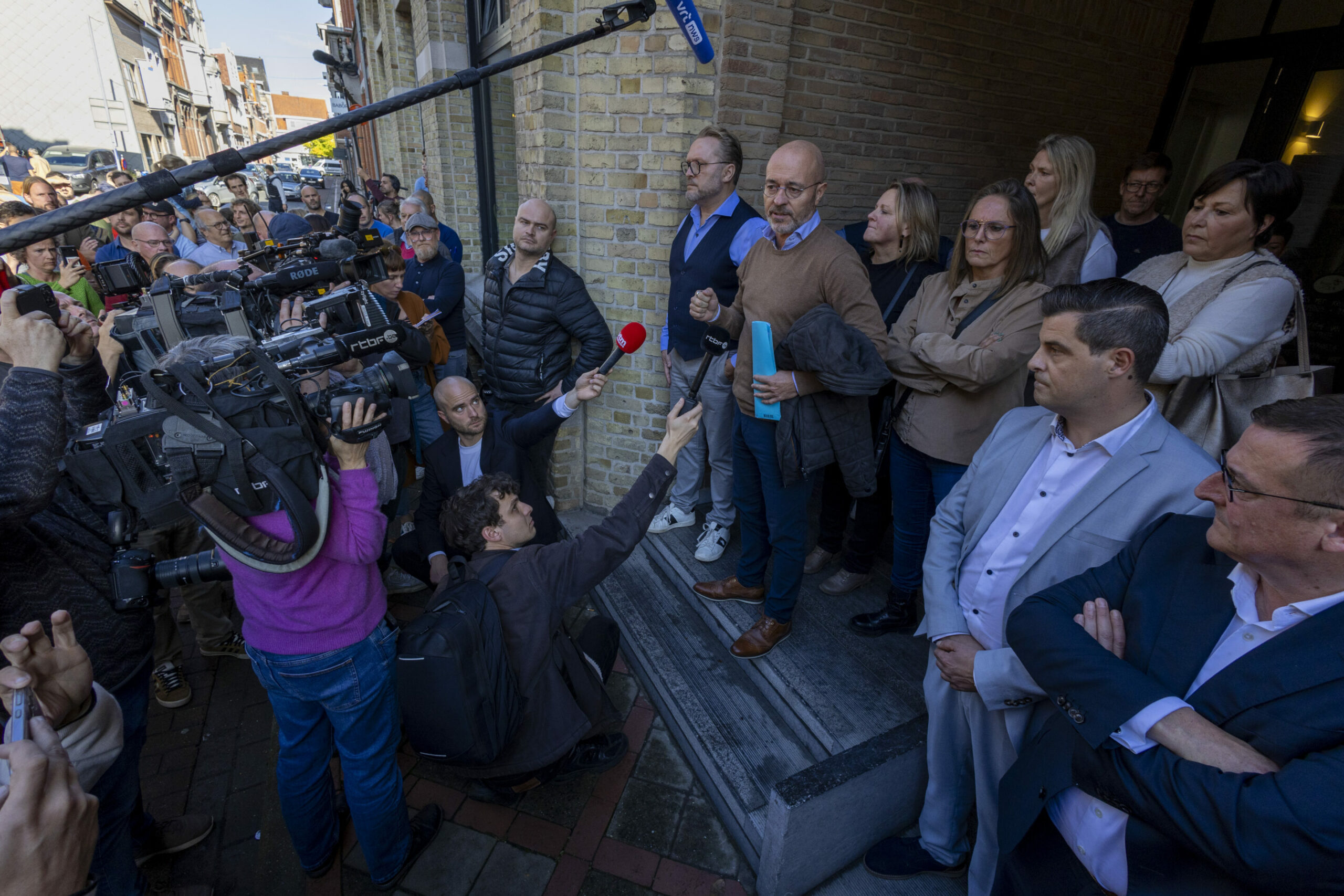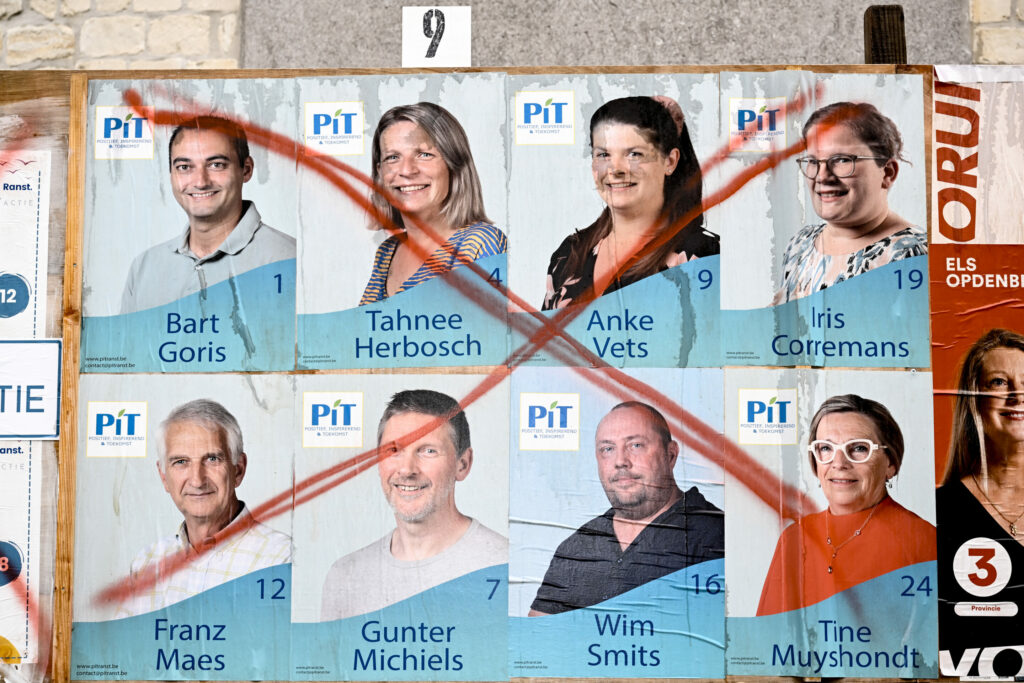"Village politics" explains the far-right party Vlaams Belang's entry into local government in Ranst and Izegem, says VUB political scientist Dave Sinardet.
The cordon sanitaire was violated for the first time since its creation in 1989 following local elections on Sunday 13 October, first in Ranst and then in Izegem. Sinardet warns that these developments, although on a local level, may have national repercussions in Belgian politics.
"It may not be a breach of the dam yet, but the more this happens, the more such agreements with the far-right will become normalised," he told Belga News Agency.
'Personal ambitions'
In Izegem, the local list Stip+ provoked shock when it agreed to form a coalition with Vlaams Belang. Two Open VLD candidates on the Stip+ list left the group in protest of the decision.
This follows a similar development in Ranst, where local lists PIT and Vrij Rans agreed to enter into government with the far-right party.
In Ninove, Vlaams Belang obtained an absolute majority on its own. The municipality is currently under investigation for electoral fraud, and in this instance the cordon sanitaire was not breached but the results means that Belgium will have its first ever Vlaams Belang mayor.

Dominique Stove, Kurt Grymonprez, Sam Weyts and Filip Buyse from local list Stip+ in Ranst. Credit: Belga / Nicolas Maeterlinck
Sinardet expressed surprise at the violation of the cordon sanitaire in two municipalities. However, he sees these agreements as results of similar situations.
"These are simply cases of personal ambitions like becoming mayor or councillor combined with interpersonal conflicts, leading to cooperation with Vlaams Belang," he said. "The cordon sanitaire was not broken out of respect for voters' signals, but merely to achieve a majority."
Despite these "village politics," Sinardet cautions that the implications are significant. "Reluctance to govern with Vlaams Belang is waning."
Far-right influence
Sinardet does not dismiss the possibility of the far-right party joining other local coalitions in Flanders, especially now that the right of initiative in municipalities without a majority agreement has shifted from the largest to the second-largest party.
Vlaams Belang leader Tom Van Grieken indicated on Saturday that his party is still negotiating in "several municipalities."
Related News
- Another Flemish commune breaks 'cordon sanitaire', far-right enters government
- 'Cordon sanitaire' broken in Ranst but its architect does not fear chain reaction
- 'Cordon sanitaire' holds in Belgium, but what now for the far-right?
Will Vlaams Belang significantly influence local policy? This remains uncertain, according to Sinardet. In both Ranst and Izegem, the far-right party is not the largest in the majority and will only secure one or two councillor positions.
"Over the next few years, there will be a focus on municipalities where Vlaams Belang is in power. I suspect their councillors will often receive calls from Tom Van Grieken, as he will want to show in a few years that there has indeed been a change with Vlaams Belang’s involvement."

